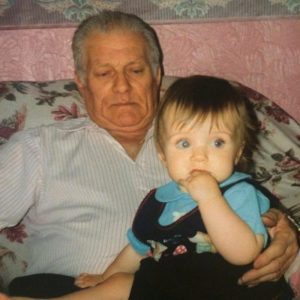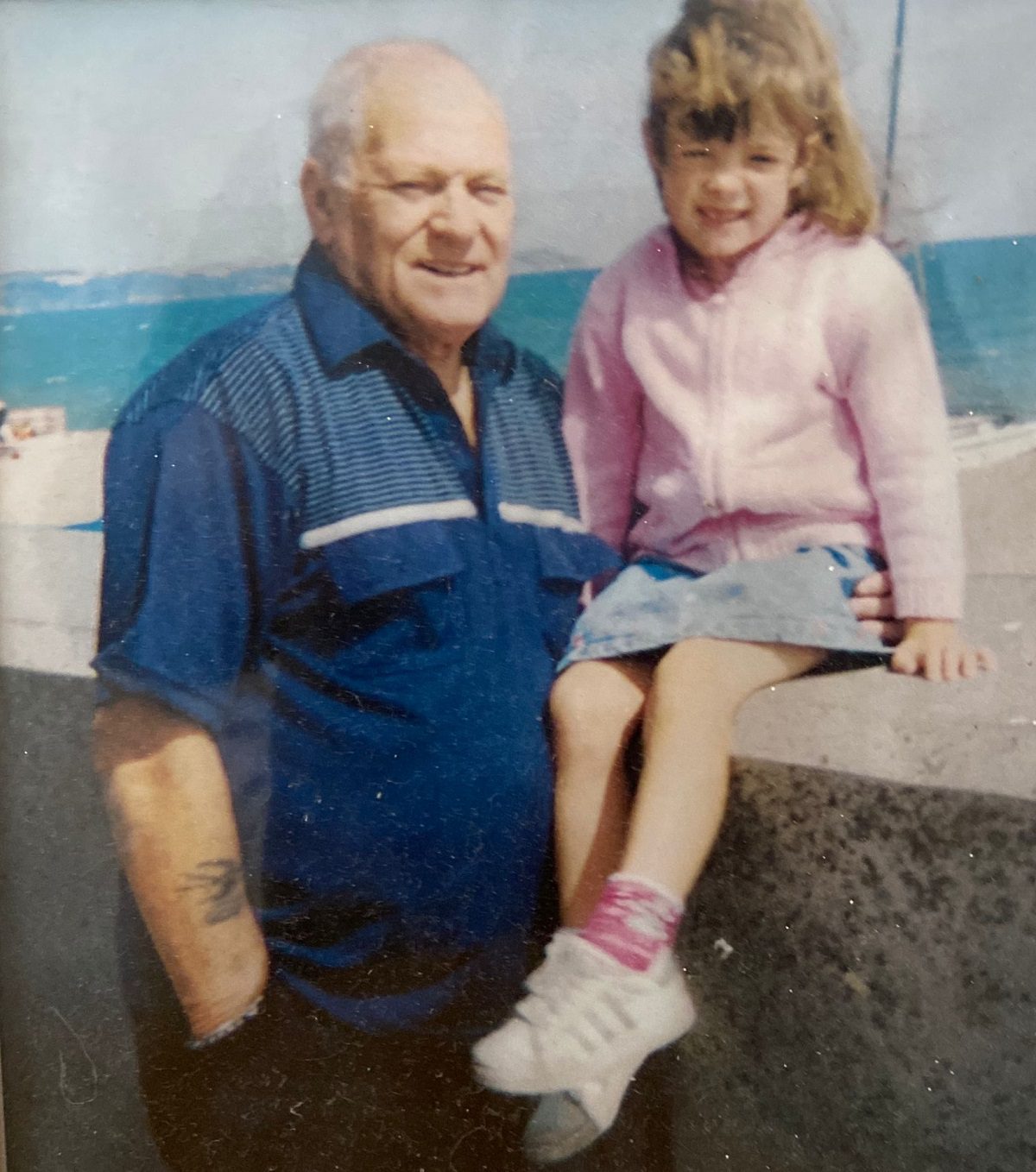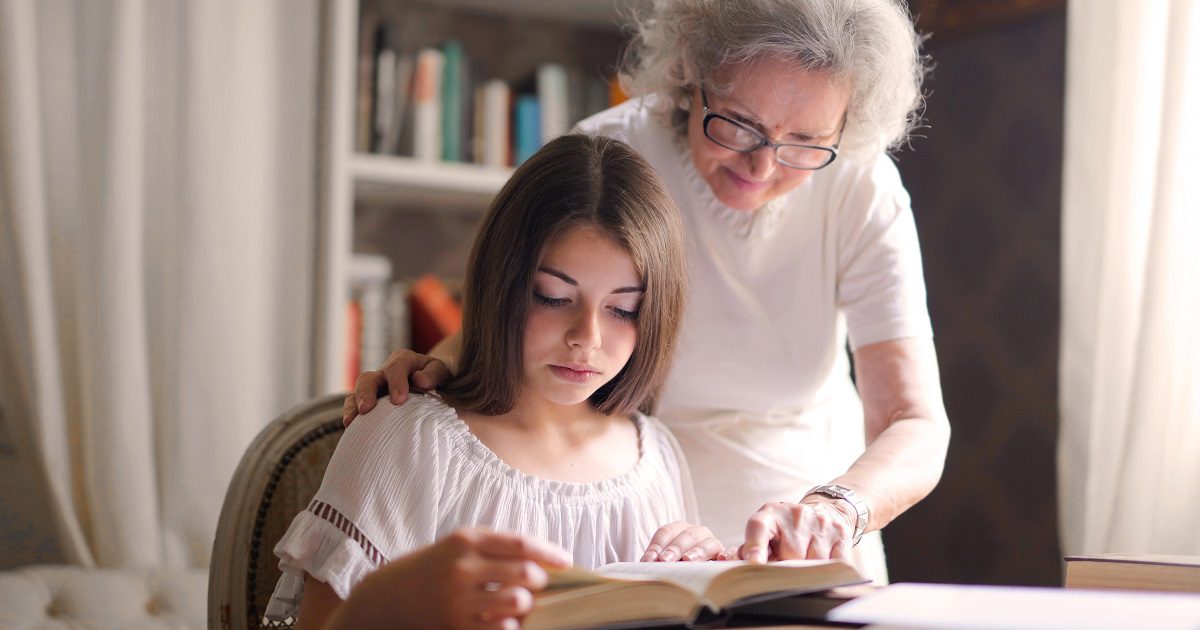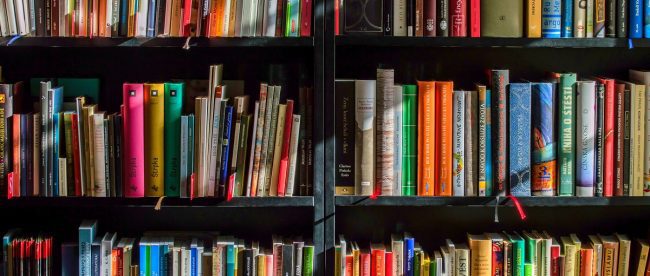Keep history alive by sharing family stories
For World Book Day this year, delve into your own treasure trove of tales. Connect with your children and grandchildren by telling them your family history.
Rutger Bruining, founder of biography-writing service StoryTerrace, is this year urging families to swap reading books to children and instead share family history stories and anecdotes. Bruining strongly believes books can be a secret portal to the past, with a focus on sharing family stories.
Over a third of Brits say that they’ve learned more about their family history from discovering possessions and overhearing discussions than they get directly from their parents themselves.
It seems, however, that grandparents play a much more vital role in passing down history than may be obvious.
29 per cent of people believe that the history and heroes of their family line will become forgotten memories in the near future. And less than a quarter of people being aware of some family legacies.
So is it time to share the family stories?
Carly’s story
Spending time together

Carly and her Grandad
I can remember being very young, sat on my Grandad’s knee at the breakfast table each morning while he read his newspaper. I was waiting for the inevitable turn to the puzzle section. It was routine for Grandad to spend his mornings filling out the puzzles cigarette in one hand, pen in the other.
My job was to help with the wordsearch. Even if I didn’t know what the word meant, I was able to find the letters in the grid, and Grandad would circle them neatly. In hindsight, I think he’d let me find a lot of them, but in my mind, I was in a serious competition that surely meant I was as clever as a grown up if I could find the words before him. As I grew up, this turned into afternoons watching Countdown together.
It’s important to take the time here to say that I spent a lot of time with my Grandad when I was a child, whether it was because he was on babysitting duties, or because I’d been sent there as punishment* for being naughty.
*My parents thought I’d be in for a boring time at Grandad’s, but these ‘punishments’ often involved him taking me ice skating, or to the park.
Exchanging stories
Over time, as my book collection grew, so did my fondness of writing stories myself. Grandad would give me the paper and pens, I’d write a story, and he’d read through it after. These stories often involved things like fairies at the bottom of the garden, or talking animals, but he entertained it all the same. Nothing made me feel prouder than when he’d comment on how neat my handwriting had gotten.
As I grew up, my works of fiction turned from childish fantasies to ‘grown up’ things I’d learned at school. For example, the war. My grandad fought in the Korean War from 1951-1953, and while this was common knowledge in the family, so was the fact he didn’t really speak about it. We’d seen the letters and medals – which I’d proudly taken into school for show and tell; my grandad had a letter hand-signed from the Queen as he was unable to collect his British Empire Medal in person – but that was basically as far as it had gotten. As I child, I obviously didn’t think about the fact that these subjects are often approached sensitively.
Well, in order for me to produce my compelling works of fiction, I needed some top insider information from a former army man. I’d ask my grandad questions about his time in Korea, and he’d answer. He’d sit there telling me anything I wanted to know – nothing too graphic, of course – and then some. I’d sit cross-legged surrounded by my pens and paper, listening in earnest to his personal tales of the war, watching the ash of his cigarette burn so low I couldn’t believe it hadn’t fallen off yet.
He’d mention names of his comrades, tell me about games they may have played on the quieter days, and people he’d met during those years. He’d even talk about what the weather was like, and how beautiful Korea as a country was.
Of course, I didn’t realise this was a unique situation, until I’d casually talk about some anecdote of his regarding the war, and have my Nan stare in astonishment, wondering how I knew such things that she had never known. This sharing of family stories was beneficial for everyone.
Uncovering family history

Carly with her Grandad
The stories went beyond the war, too. I distinctly remember Grandad telling me he had a sister, who died when she was just a baby. I didn’t think this was news, as I assumed it would be common knowledge in the family. It wasn’t until one day – after my Grandad’s death – that I asked my Nan where Grandad’s sister was buried.
I knew where his parents and brother were laid to rest, but I’d never seen his sister’s name there.
“Grandad didn’t have a sister, just a brother,” my Nan had said.
“No.” I was adamant. Hadn’t he told me himself? “He had a sister who died when she was a baby. She was called Annie.”
Unbeknownst to me at this point, my Grandad’s mother was also called Annie, and so it actually made total and complete sense. They admitted that Grandad had never ever told them about it, but they didn’t disbelieve me.
I recently found a record of someone with the same name who had lived around the right time, but we’re piecing together our family tree on ancestry.co.uk, so we’ll know for sure soon enough.
The magic of grandparent-grandchild relationships
We often forget that as children, we spend a lot of time with our grandparents, whether it’s a treat or a matter of babysitting. And often, our grandparents don’t do an awful lot else, meaning they’ve got the time to talk until the cows come home. If it wasn’t for my conversations with my Grandad, I may never have known certain things about our family history, as some facts were unknown to my father and grandmother.
Whether it was telling me about his three-mile walk to school, the farm he lived on when he was younger, or the meaning behind his 60-year-old tattoo, I’ll forever be grateful for my grandad’s stories. While people die, stories don’t, and it’s up to us to keep them alive. Keep sharing your family stories.

Sam’s tale
Dad’s passion for family history
My dad died last year – a reasonably good innings, but unexpected, and a real shock. But one of the things that made his loss slightly more bearable was the time I’d spent with him in the past few years getting to know him better.
Not just him, though. He and I had taken an endearing little pilgrimage to the streets where he’d grown up in Teddington. Driven through the huge park where he and his brother and mates had pranked drivers in the snowy weather by lying on the roadside as if they were hit. Little sods. We went past his old school, Hampton. And had lunch in a pub where he’d had his first pint – albeit now a fancy gastro place, very different to how it had been in the 60s.
Apart from this trip, I learned a lot about my family background in chit chat with him, as we both grew older. And in his latter years, he’d developed a fierce interest in knowing his roots. DNA samples had been sent, genealogy explored. He’d been nagging me to go on a road trip to Germany where he’d found some ancient links to the past. I’d kill to do that with him now, of course. But the pandemic got in the way, and then he died. But when I went though his house, I found all his records, neatly filed and labelled, and I brought them home. I will pick that up at some point.
Learning from my grandmother
But the real meat and bones of my familial understanding came from my grandmother, his mother. Through my childhood, each summer, for as long as I can remember, me and my sister and my two cousins spent at least two or three weeks at my grandmother’s. Our parents, probably desperate for a bit of time without the kids, coordinated it so we were all there together and we adored it. Grandma was almost rule-free, wanted to actually spend time with us, and was endlessly tolerant of our nonsense. Happy days in Hastings, whilst we roller-skated and fancied the bloke in the chip shop, and made her spend hours on the beach and in the little boutiques buying us sparkly headbands. It was the 80s, ok?!
But the real treasure, I think now, was the time with her.
But the real treasure, I think now, was the time with her. Time to just hang about. Time to spend listening and not doing much. When do we get that sort of time now? And during that time, one of the things we did (at length) was watch our glamorous grandmother prepare for the day and talk about life.
She was beautiful, always dressed to the nines, and during the endless toilette each day she would talk to us non-stop. Talk about her childhood, about family, about her marriage, her life. About uncles, aunts and great cousins we’d never met. Her own parents. Even my father’s previous wife before my own mother. We knew more about our family than any of our parents. And I carry that collection of memories now carefully, because we are last few in a long line.
When my daughter – who is currently 21 and not really interested in family history – is older, I will do my best to pass this stuff on. To tell her about her family, our history. Because otherwise it becomes lost. A name on a family tree from Ancestry dot com.
For more anecdotes about Sam’s glamorous grandma, see here.
Importance of storytelling
We’ve told our stories to you, as our parents and grandparents did for us. And when you read our stories, perhaps you’ll remember tales of your own. Without these tales, family history gets lost. Keep the magic alive by sharing your anecdotes, speak to other family members, and find out as much as you can while you can. Share your stories.

Carly gets to do everything under the sun, including writing, editing, taking photos, creating stories, and swanning around at launches. She can down a glass of Prosecco without pausing for breath, and aims to be the youngest Pulitzer winner ever.



Leave a comment